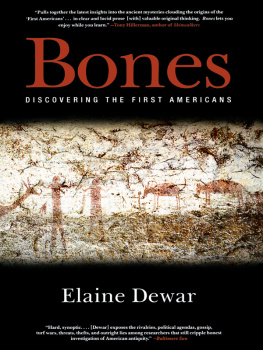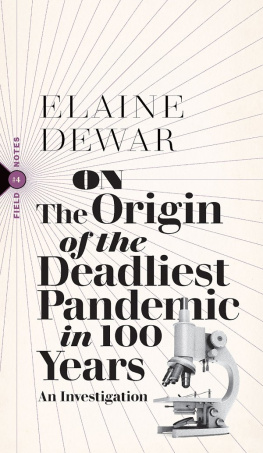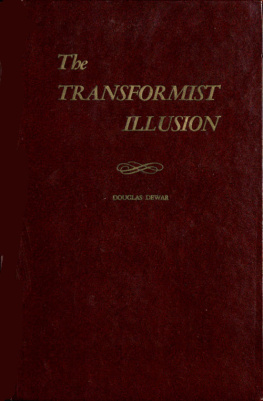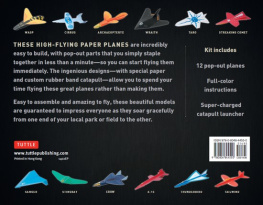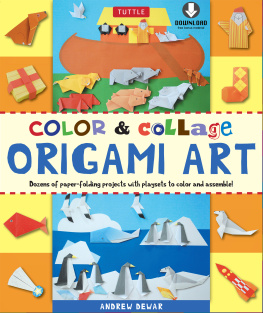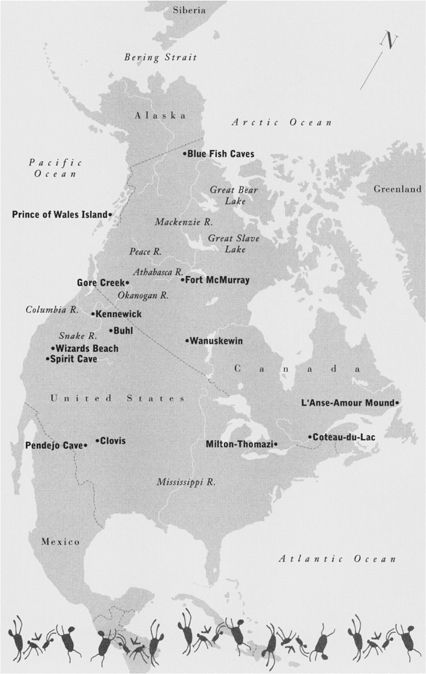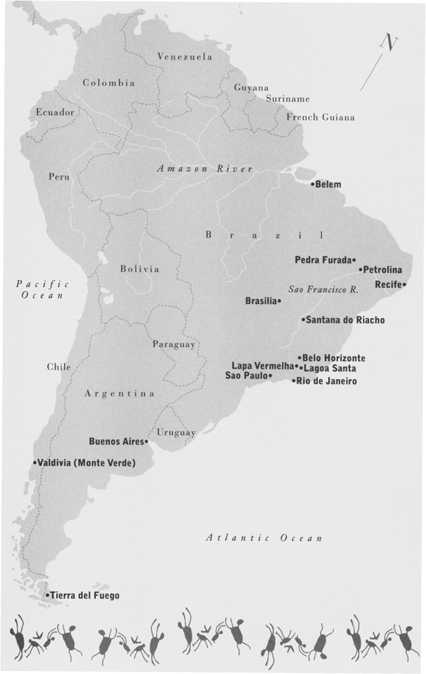PRAISE FOR BONES
With the flair of a mystery writer, Dewar explores the conflicting theories as they are influenced by academic and personal jealousies, government interference, ethnic concern, mishandled artifactsall the human and bureaucratic folly that have gotten in the way of the science. A revealing and informative look not only at the archaeology in question but at the convoluted, intricate, and very human difficulties in doing science.
Library Journal
Hard, synoptic... [Dewar] exposes the rivalries, political agendas, gossip, turf wars, threats, thefts, and outright lies among researchers that still cripple honest investigation of American antiquity.
Baltimore Sun
A well-written and researched book.
Choice
Bones not only pulls together the latest insights into the ancient mysteries clouding the origins of the First Americans, [Dewar] does so in clear and lucid prose... and adds valuable original thinking. Bones lets you enjoy while you learn.
Tony Hillerman, author of Skinwalkers
Sharp writing and strong reporting make Bones a compelling... take on the controversies inspired by the first Americans.
Archaeology
Elaine Dewar [has] an excellent eye for hidden stories.... A fascinating exploration of the political and academic implications of unburied skeletons and the potential information they contain.
Robert McGhee (Curator of Archaeology at the Canadian Museum of Civilization), in the Toronto Globe and Mail
Smoothly written... This is all fascinating stuff, and Dewar writes it up with the flair of a good mysteryyet what haunts the reader long after all the new theories have been posited are Dewars condemnations of the field of archaeological study.
Kirkus Reviews
A compelling account... the peopling of the Americas is one of the epic chapters in the human story.
Macleans
Anyone wanting to know the real state of archaeology and anthropology in the Americas needs to read this book.... Dewar peels away fallacy, uncovers hypocrisy, points out spurious logic and faulty reasoning....
Ancient American
Controversial... Dewars narrative, written with the zest of a travel account, will intrigue amateur archaeologists and readers interested in American Indians.
Booklist
Bones
DISCOVERING THE FIRST AMERICANS
Elaine Dewar
CARROLL & GRAF PUBLISHERS
NEW YORK
BONES
Discovering the First Americans
Carroll & Graf Publishers
An Imprint of Avalon Publishing Group Inc.
245 West 17th Street
11th Floor
New York, NY 10011

Copyright 2001 by Debonaire Productions Inc.
Published by arrangement with Random House Canada, a division of Random House Canada Limited, Toronto, Canada.
First Carroll & Graf edition 2002
First Carroll & Graf trade paperback edition 2004
All rights reserved. No part of this book may be reproduced in whole or in part without written permission from the publisher, except by reviewers who may quote brief excerpts in connection with a review in a newspaper, magazine, or electronic publication; nor may any part of this book be reproduced, stored in a retrieval system, or transmitted in any form or by any means electronic, mechanical, photocopying, recording, or other, without written permission from the publisher.
Library of Congress Cataloging-in-Publication Data is available.
ISBN: 0-7867-1377-1
eBook ISBN: 9780786740376
Printed in the United States of America
Distributed by Publishers Group West
IN THE STUDY OF LITERATURE, much usually depends ondirect confrontation with a work. Who would dare to approach A Farewell to Arms by a synopsis? It is only natural to distrust a literary experience if we have been guided too carefully through it, for the act of reading must provide by itself that literary experience upon which our senses will later work.
But the study of science is different. Much like the study of history, it begins with legends and oversimplifications. Then the same ground is revisited, details are added, complexities are engaged, unanswerable questions begin to be posed. A scientific account is a story which can always be retold, for the line of the narrative in scientific writing is to be found in the deepening of the concept.
NORMAN MAILER, Of a Fire on the Moon
Introduction
T HIS BOOK BEGINS with a simple question. Where did Native Americans come from? I know I was given an answer when I was just a child, before I had learned enough about the world, and enough about how we learn about the world, to even ask the question for myself. This answer was a comfort to immigrants and the children of immigrants as they broke ground, built towns and cities from one end of the hemisphere to the other, and muscled aside the descendants of people who were in the Americas before them. It often popped up before the question could be formed, particularly in those scarce moments of moral hesitation when new immigrants came face to face with those they had displaced, and recognized that Native Americans were suffering and dying even as they, the newcomers, prospered. For more than a century this answer was ready for anyone who needed it: Native Americans came from somewhere elsefrom Asia. All are descendants of the same immigrant people.
I was born in the middle of the twentieth century on the Great Plainsin the city of Saskatoon, Saskatchewan. I am the grandchild of immigrants from Eastern Europe who arrived there when it was still a frontier called the Northwest Territories. The government of Canada promised free land if my grandparents would go to the Prairies and bust the sod. And so they left the wars and racism and religious hatreds of Russia and Romania, migrating halfway around the globe to the New World. They helped to colonize the beautiful and frigid prairies. Their first homes were sod houses, built of thick squares of turf they cut out of the ground. They were known as pioneers, as if no one had ever been there before them.
If they had regrets about being part of a process that ended the ancient and complex relationship between Native peoples and their lands, I never heard them discuss it. By the time I came along, they were city folk with their own businesses (although my mothers father held fast to his northern farm for many years, not letting go even after his tractor fell on him, when he was eighty-five). Native people had been pushed so far to the margins of society that my contact with them came mainly at fairs and parades and multicultural festivals where ethnics of all sorts came forward, in costume, to sing their foreign songs and dance their foreign dances. We were all immigrants together in the New World and therefore in my mind we were equivalent: we came from Eastern Europe, they came from Asia. I did the hora, they had their powwows, their drums and their fancy dancing. We came on boats and built the railroads. Exactly how they came was a matter to be determined by science because they had no written histories, just stories about their origins, encased in languages that no one but the old people spoke anymore. Governments and church schools tried to wipe those languages away because they interfered with the process of making Native Americans just like everybody else. If the Native peoples were unhappy about that we didnt hear of it. (How could they complain? Status Indians in Canada only got the right to vote in 1960.) It was up to science to dig up the Truthand teach it to them.

